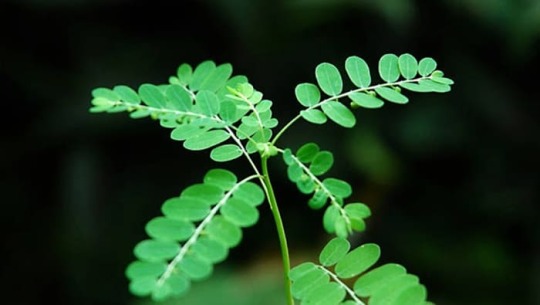Infection caused by hepatitis C virus still receives attention from the international community. In Indonesia based on the Republic of Indonesia Ministry of Health data in 2017, there were around 1.01% (2.5 million) of the population affected by hepatitis C. The hepatitis C virus is a viral RNA transmitted parenterally among others through blood transfusion and sexual relations. In the human body, the virus will infect liver cells and multiply in these cells. A long-term infection has the potential to cause cirrhosis and liver cancer which are serious causes of death.
The access to existing drugs is limited due to the high prices so only some patients can get the latest treatment from this disease. Resistance factors and side effects from existing drugs contribute to the problem in the treatment of this infection. Therefore, it is necessary to develop drug therapies that are safe, affordable, and effective for dealing with hepatitis C virus infection. One of them is with medicinal plants.
Indonesia is a country that is rich in biological resources, especially plant sources that have been used for the treatment of various diseases. Plants contain a variety of chemical ingredients that play a role both to prevent and cure disease.
Meniran is a plant that grows in many areas in Indonesia and is well known by the public. This plant has been empirically believed to be useful especially to increase immunity and for this activity, it has been developed as a modern product.
Meniran plant or called Phyllanthus niruri shows strong activity in fighting hepatitis C virus infection. This herbaceous plant extract inhibits the entry of the virus into hepatocyte cells by 70%. However, further testing of the extract can also reduce the proliferation of the virus through inhibition of the NS3 virus protein which is a protein that plays a role in the virus replication stage.
This plant extract has a synergistic effect with the drug simeprevir, which is an anti-HCV drug circulating in the market. Giving meniran herbal extract together with simeprevir can increase simeprevir activity up to 4 times greater.
Using a computer program, it was explained that the compounds contained in meniran plants, Phyllantin and Hypophyllantin, had binding on the receptors that play a role in the entry of the virus and it could inhibit the virus from entering the liver cells. In addition to the antiviral activity, there is also non-toxic effects from this plant.
The result of this study allows the development of meniran plants both for prevention and cure hepatitis C virus infection. Tests for anti-hepatitis C virus activity were carried out on hepatitis C cell culture developed at the NPMRD (Natural Product Medicine Research Development) laboratory, Institute of Tropical Disease, UNAIR.
Meniran herbal plants are harvested from Lembang area, Bandung, then dried with aerated (protected from sunlight) and extracted with ethanol. Activity test conducted with several concentrations of 0.1 -100 mg / ml, and obtained the IC 50 value of 4.14 mg / mL, which is a potential value and non-toxic to the CC 50 > 100 mg / mL.
To find out the extract target, a mode of action test was performed and the results showed that meniran had a greater resistance at the entry stage (entering into hepatocyte cells) with 70 percent inhibition rate compared to the post-entry stage (virus propagation in hepatocyte cells) with 43 percent inhibition rate.
In the combined test, it is known that meniran extract has a synergistic effect on simeprevir (an anti-HCV drug currently used to inhibit the replication of the hepatitis C virus NS3 protein) and it can amprlify the activity of simeprevir drugs to 4 times greater with IC 50 values of 3.54 nM ± 0.05 compared to a single simeprevir with an IC 50 value of 11.23 nM ± 0.36.
From the docking analysis on Molegro virtual docking software, it is known that meniran content compounds, phyllanthin ,and hypophhyllanthin have strong interactions with 4GAG receptors (protein receptors involved in the entry stage of the hepatitis C virus life cycle). From these results, it shows that meniran is a potential candidate to be developed as an alternative and complementary drug in hepatitis C virus infection. (*)
Author: Tutik Sri Wahyuni
Details of research can be obtained here: http://www.mabjournal.com/index.php?option=com_content&view=article&id=935&catid=59:current-view&Itemid=56





